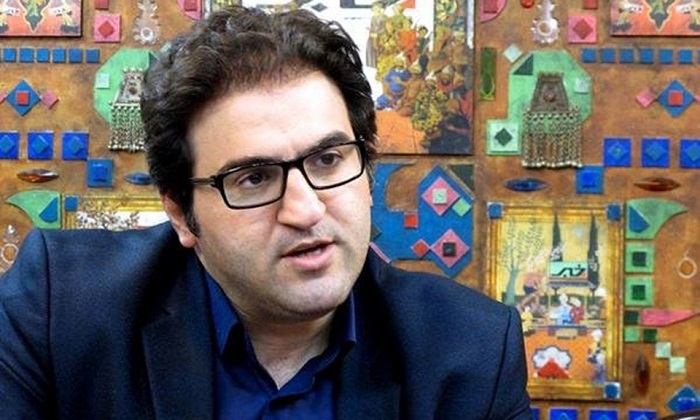Alwaght- On Monday, Russian President Vladimir Putin hosted a meeting between the Azerbaijani President Ilham Aliyev and the Armenian Prime Minister Nikol Pashinyan who talked for the first time since October and November fierce war over the disputed Karabakh region.
The talks came two months after a ceasefire agreement brokered by the Russian leader.
Following the agreement that ended the latest Karabakh war, Azerbaijan and Armenia agreed on the creation of a gate that would link mainland Azerbaijan to Nakhchivan, an autonomous republic.
About the latest Karabakh negotiations among the three leaders, Alwaght arranged an interview with Professor Vali Kozehgar-Kaleji, a Russian affairs expert.
The first question was about the goals of the trilateral summit. Mr Kozehgar-Kaleji said that concerning the Moscow meeting, what was generally declared is related to an amendment to the November 10 truce. The agreement, despite the initial green light from both sides, was incomplete and faced problems in the course of implementation.
“Such issues as prisoner swap, the missing, bodies of the dead, and borderline demarcation need to be determined in the agreement. Especially the border issues in Karabakh that according to the deal need to be marked separately. This issue is causing sensitivity inside Armenia because several villages should be handed over by Yerevan, an issue that has been a source of a lot of challenges and sensitivity. Also the presence of the Russian peacekeeping forces in Karabakh, provision of security of Lachin— a town within the strategic Lachin corridor which connects Karabakh with Armenia, and is under the supervision of the Russian peacekeeping force following the ceasefire agreement—, the Nakhchivan-Azerbaijan corridor, railways, security, energy, transportation, and other bilateral issues regarding the new Karabakh status were the topics of discussion at the meeting.”
Asked about Russia's goal behind talking to France as a Minsk Group member before the meeting and also the Minks Group’s role in the Karabakh crisis, the Iranian expert held that Minsk Group was founded by the Conference on Security and Cooperation in Europe in 1992 to encourage negotiations between Baku and Yerevan and settle the Karabakh dispute. Russia, the US, and France lead the platform.
The group was totally marginalized in the recent war for specific reasons, according to Mr Kozehgar-Kaleji. On the one hand, the US was heavily busy with its elections, and on the other hand France was in tensions with Turkey in the Eastern Mediterranean. The French-Turkish tensions put Paris beside Yerevan in the recent dispute, terminating the French balancing role in Karabakh.
“So, only Russia managed to play an active role and present its status as a mediator. Actually, Moscow’s role became crucial and the Russians managed to activate the ceasefire and put an end to the war, an arrangement even the US could not make.”
He continued that by calling France, Putin addressed some concerns as both Moscow and Paris are worried about Armenia's position in the dispute. Moreover, France hosts the third-largest community of Armenian diaspora and it seems that the role of the Armenian lobbies showed its influence in the Putin-Macron phone conversation. By influencing this conversation, these lobbies tried to reduce Putin's pressures on Pashinyan and persuade Moscow to behave considerately to Yerevan as the losing side of the military confrontation.
Could Russia terminate the Karabakh crisis, or was the recent dialogue aimed at the temporary cessation of hostilities? This was a question Alwaght asked. The Expert answered that during the battle, seven cities in addition to Shusha city went under Azerbaijan control. Azerbaijani forces did not advance beyond Shusha because Russia disallowed them. If they were allowed to advance freely, the whole of Karabakh would have fallen to them. So, Russia has a key role in keeping the Karabakh status quo.
“The balance of power could change in Turkey and Azerbaijan’s favor had Karabakh fallen to Azerbaijan. So, Russia preferred only the fall of seven cities for the punishment of the pro-Western factions in Armenia and did not allow full collapse of the region.”
On the other hand, Aliyev is not interested in fully closing the Karabakh case because he extends his presidency by announcing a permanent state of war in Karabakh. That is why he left to the future the case of the mountainous Karabakh region, Mr Kozehgar-Kaleji noted.
“From a different dimension, it is likely that Karabakh meets a fate similar to Abkhazia and become a Russian exclave, as now Russian passports are issued to applicants in Karabakh. Chances are in the future Karabakh residents would vote in a referendum to join the Russian Federation. Thus, the Russians cannot allow full collapse of Karabakh as they in the back of their heads may have plans for annexation of the region to Russia in the future.”



























